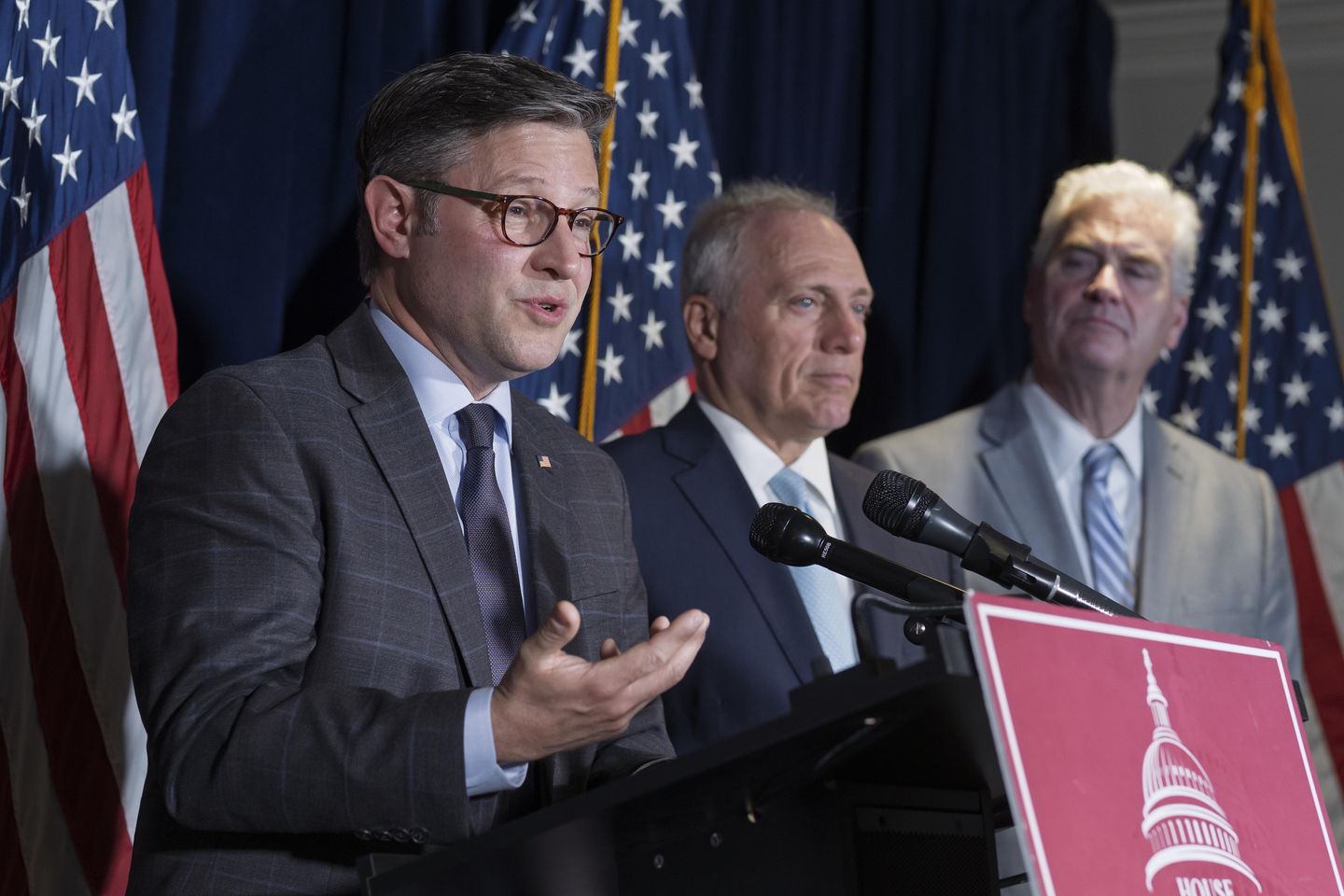
Lawmakers may soon boost funding for their own security as concerns about political threats rise after the assassination of Turning Point USA co-founder Charlie Kirk.
Congressional leaders in both chambers had already begun pilot programs increasing security allowances for members when they’re in their districts or traveling outside of Washington, where they’re protected by Capitol Police. Now, they’re looking at accelerating the transition from test cases to permanent offerings.
Members of both parties are worried about increasing political violence amid shocking attacks that showed how far some opponents will go to silence those whose views they disagree with.
Mr. Kirk, a 31-year-old conservative activist, was assassinated on Wednesday while engaging in debate with students at Utah Valley University as part of his fall campus tour. The 22-year-old arrested for his murder, Tyler Robinson, allegedly fired at Mr. Kirk from a rooftop 200 yards away from where he was speaking.
In June, two Democratic lawmakers in Minnesota and their spouses were gunned down in their homes. Minnesota state Rep. Melissa Hortman and her husband died, while state Sen. John Hoffman and his wife survived the attack.
The man charged with multiple counts of murder in the shooting, 58-year-old Vance Boelter, pleaded not guilty in federal court earlier this month.
A month after the Minnesota shootings, House Speaker Mike Johnson and House Administration Chairman Bryan Steil announced a plan to double the amount lawmakers could spend on installing residential security systems to $20,000.
They also temporarily increased House members’ $150 monthly security monitoring and maintenance allotment to $5,000 and said lawmakers could use the extra funding to hire personal security guards. However, that monthly increase was only authorized through fiscal 2025, which ends Sept. 30.
Mr. Johnson, Louisiana Republican, told reporters Thursday that roughly 20 members have taken advantage of the increased monthly allotment for personal security, but after Mr. Kirk’s assassination, he heard from more lawmakers interested in doing so.
“Many members on both sides of the aisle approached me about it and said, ‘You know, I didn’t participate over the last couple of months, but my spouse right now is very concerned. My family’s very concerned. I’m concerned,’” the speaker said.
Mr. Johnson said the participation rate of the two-month pilot program was designed to give House leaders an idea of how much they should budget for it in the future.
“We didn’t have a big data set to sample because there weren’t that many members that took advantage of it,” he said.
Now, with fresh worries about political violence and the government funding deadline fast approaching, Mr. Johnson said House leaders are engaged in “a very thorough review of the existing options and how we might need to enhance that to ensure member security and safety.”
He acknowledged that doing so is costly and that in the House, which has 435 members, “it’s not yet a possibility” to provide a Capitol Police security detail for every lawmaker. Estimates have shown that it would cost billions of dollars and require the hiring of 5,000 additional Capitol Police officers, the speaker said.
The Senate, however, has started its own pilot program to eventually provide a protective detail for all senators when they are outside of Washington, according to Sen. Markwayne Mullin, Oklahoma Republican and top appropriator on the panel that oversees legislative branch spending.
“We’re probably a little bit farther along than the House,” he said.
Mr. Mullin said the Senate is running a pilot program providing personal security detail for senators with “higher threat levels,” which will help them determine the cost and feasibility of extending it to all 100 senators.
“What is a life worth?” he said. “And unfortunately, most people think that we have security on us already. Truth is, we don’t. And with a political environment we find ourselves in, it’s also a sad time that that’s a discussion that has got to happen.”
Mr. Mullin declined to say which senators, or how many, were involved in the pilot program, which provides security detail when they’re in their states, not in Washington.
The pilot program was initially supposed to run for a year, but Mr. Mullin said the Kirk assassination has “made things speed up a lot.”
The Sept. 30 deadline for funding the government is adding additional pressure for lawmakers to figure out whether they need to further increase funding for congressional security.
The Senate’s legislative branch spending bill for fiscal 2026, which the chamber passed in July but is still under negotiation with the House, included $15 million to provide for enhanced security for senators and an additional $3.5 million for them to spend on residential security.
The House provides lawmakers security funding through their Member’s Representational Allowance (MRA), the name for their personal office budget. The chamber has not passed its fiscal legislative branch spending bill yet, but the version reported out of committee continued existing MRA funding levels, including a $25,000 allotment for security purposes that was first added in 2017.
Mr. Johnson suggested the amount may need to increase in light of increasing threats and member anxiety following Kirk’s assassination.
“We’ve gotta protect people who run for public office or no one will,” the speaker said. “And that’s heavy on our hearts and minds as we also work through the trauma of what happened.”














